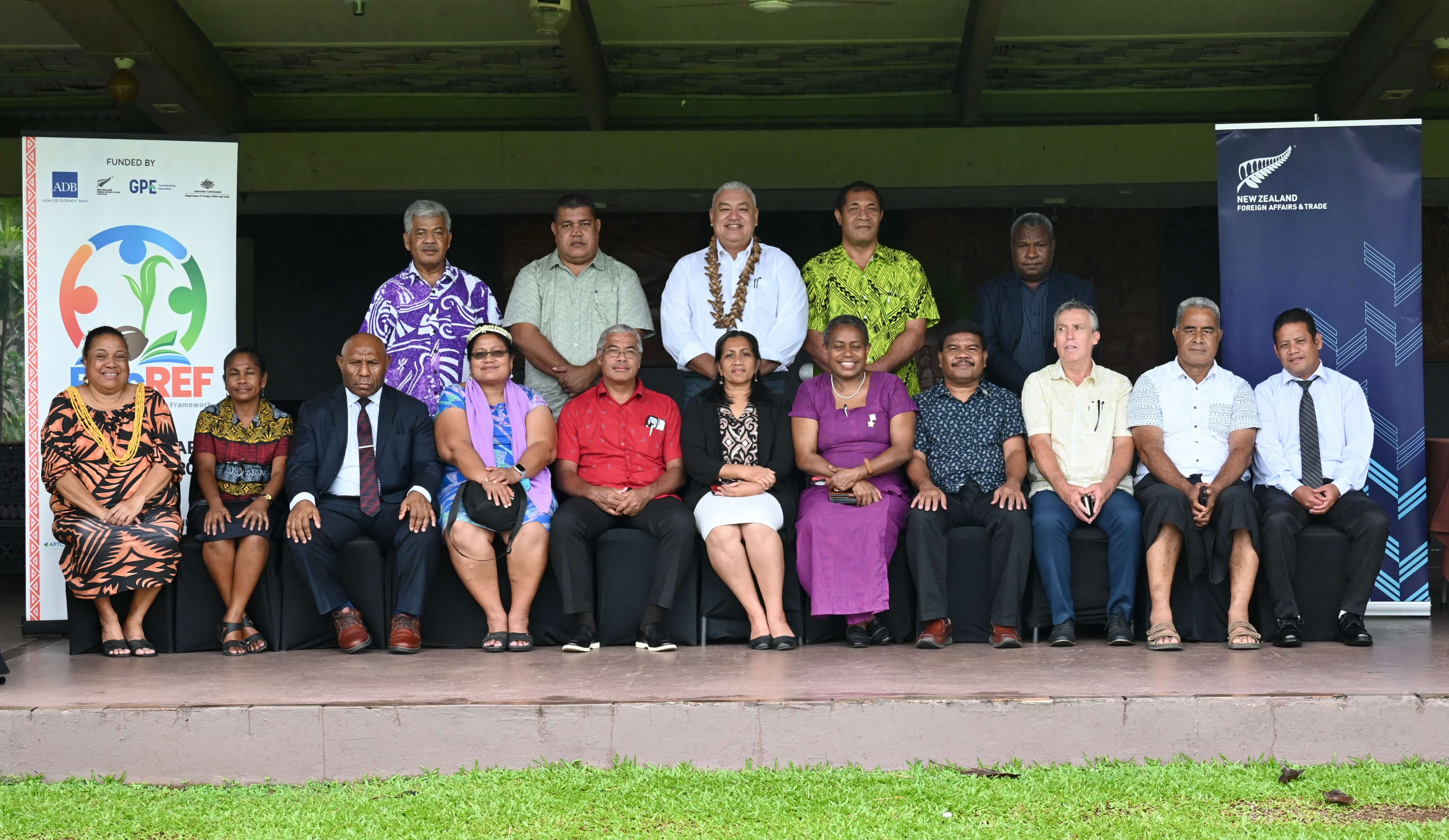Related News

Sixteen Regional Goods (RGs) developed under the Pacific Regional Education Framework (PacREF) aimed to enhance the sustainability, affordability and quality of education services in the Pacific region continue to reach meaningful heights.
These initiatives are being practically coordinated by the PacREF Facilitating Unit (PFU), based at The University of the Pacific (USP), Laucala Campus in Suva, Fiji in collaboration with implementing agencies and in consultation with 15 Pacific Island countries.
The announcement came during the closure of the PacREF-focused Pacific Heads of Education Systems meeting in Nadi, Fiji.
This event was funded by the New Zealand Government through the Ministry of Foreign Affairs and Trade (MFAT).
USP Vice-Chancellor and President Professor Pal Ahluwalia said that as the PacREF progresses, the focus is to contextualise the RGs into Pacific individual countries’ education systems in line with the commitment to implement the Conference of Pacific Education Ministers (CPEM) outcomes made in 2023.
In recognising the need for capacity building for Pacific islanders responsible at the country level, Ahluwalia called for ongoing support mechanisms as an essential step to bolster the capabilities of USP and regional agencies like the Pacific Community’s Educational Quality and Assessment Programme (SPC-EQAP) to provide sustained support beyond the PacREF timeline.
He said whilst efforts are underway to secure the Regional System Capacity Grant (SCG) from the Global Partnership for Education (GPE), the SCG will only primarily focus on enhancing the capacities of EQAP and USP’s Institute of Education (IOE) to align to strengthen regional agencies for continued support.
“Progress in implementing the Implementation Rolling Plan (IRP) Phase 1 of the PacREF has accelerated in the past year, with funding flowing and the impacts of COVID-19 gradually receding. As we look ahead, the goal is to complete most of the RGs by the end of 2024, preparing for a transition into Phase 2 in 2025, which will focus on embedding these guidelines at the country level,” he said.
To sustain this progress, the USP Vice-Chancellor said it is crucial to extend funding for Phase 1 into 2025 and secure new resources for Phase 2.
“To ensure the continuity of Phase 1’s momentum, we are calling on development partners and implementing agencies to support the efforts of advancing the PacREF objectives, and we express our gratitude for the support received for Phase 1 and reaffirm the USP’s commitment to hosting the role of the PacREF Facilitation Unit (PFU) as the program moves into Phase 2,” he said.
The PacREF is a regional project that seeks to deliver sustainable, affordable, high-quality education goods and services accessible to all Pacific countries.
This is all done through partnerships and a commitment to regionalism.
The PacREF has 15 member countries; these countries are the Cook Islands, Fiji, Federated State of Micronesia, Kiribati, Nauru, Niue, Palau, Papua New Guinea, Republic of Marshall Islands, Samoa, Solomon Islands, Tokelau, Tonga, Tuvalu and Vanuatu, all sharing the common goal of the Programme.